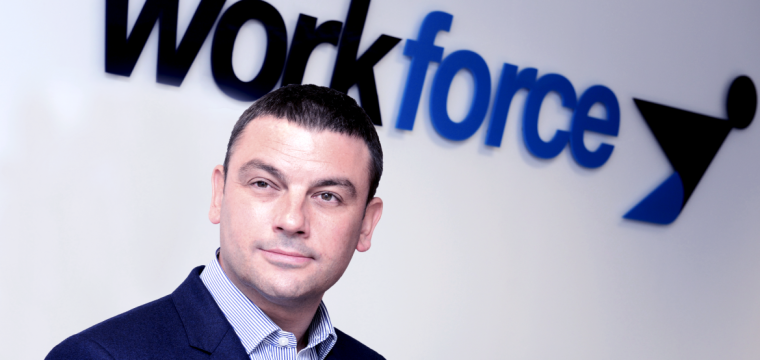We share relevant third party stories on our website. This release was written and issued by the Northern Powerhouse Investment Fund.
Specialist recruitment firm Workforce People Solutions (Workforce) has reported a 20 per cent uplift in numbers of staff since the start of lockdown and the launch of an entirely new technology division, Workforce Digital, following a £500,000 investment from NPIF – FW Capital Debt Finance, managed by FW Capital and part of the Northern Powerhouse Investment Fund.
Workforce is a Bolton-based firm which recruits highly skilled labour for industries including healthcare, manufacturing, furniture and textiles, automotive and transport. It serves both large blue-chip companies and smaller SMEs through its ‘Recruit, Relocate and Retain’ business model.
The company is run by CEO Simon Hayton, who completed a management buyout in 2016. It currently has a turnover of circa. £10m and employs 50 staff at its Bolton head office.
After receiving a £500,000 funding package through NPIF – FW Capital Debt Finance in December 2018, Workforce has gone on to launch a new division within the business, Workforce Digital. This bespoke recruitment and relocation model has been developed in response to significant demand for more Tech and IT talent in the UK, and sources candidates from across the UK, Europe and further afield.
The number of staff at Workforce has increased by 20 per cent to a total of 50 members of staff as a direct result of this, with plans in place to increase this figure by a further 20 per cent in the next 12 months.
The company has traded well throughout the COVID-19 pandemic, having placed over 500 candidates – 70 of which were sewing machinists for PPE equipment for the private sector and NHS – in work across its healthcare and manufacturing divisions during this period.
Simon Hayton, CEO at Workforce, said: “Despite the current economic challenges, it has been an exceptional year for us in many ways. Not only have we launched an entirely new division in Workforce Digital to serve those in search of the very best global tech talent, but we have been in a position to grow our own team significantly, too. The support from NPIF and FW Capital has been crucial to that growth and we are appreciative of the partnership to date.”
Mo Isap, Co-chair of the Greater Manchester Local Enterprise Partnership (GM LEP), said: “Given the current climate, it’s encouraging to see a confident business creating jobs by launching a new venture.
“For growing companies with a compelling business case, funding is available despite a challenging external economic environment. The Northern Powerhouse Investment Fund exists to support SMEs at all stages of their development, and the GM LEP will continue to work alongside the Fund to help Greater Manchester’s businesses realise their potential.”
Melanie Taylor, Senior Portfolio Executive at FW Capital, said: “It is fantastic to work with such a fast-growing organisation with an impressive business model, which is transferable to other sectors to enable growth. The strong management team has risen to the challenges linked to COVID-19 and has offered high-demand sectors, such as healthcare, access to the very best talent. I look forward to working with them as they continue to grow and excited to see where the Simon takes the company in the future.”
Sue Barnard at British Business Bank, said: “One of the reasons NPIF exists is to help boost job opportunities within the North, so we are very pleased to have been able to assist Workforce in boosting jobs in the Bolton region. We look forward to continuing to assist likeminded businesses to scale up and achieve their growth targets.”
The Northern Powerhouse Investment Fund project is supported financially by the European Union using funding from the European Regional Development Fund (ERDF) as part of the European Structural and Investment Funds Growth Programme 2014-2020 and the European Investment Bank.


